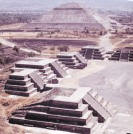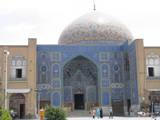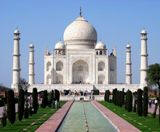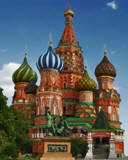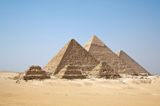|
AN INVITATION
THE ANNUAL SEMINAR
Evangelization and Culture Religion
in Public Life
September 5 -
November 10, 1993
Washington, D.C.
On the
Quincentenary of the voyage of Columbus it is possible
to look with new eyes at the process of evangelization
in the Americas, and to design yet more adapted
approaches to the new configurations of the Catholic
population.
The
Opportunity
What makes this
possible is the new sensibility to the person which has
transformed the world during the last half century. From
the heavy burdens of totalitarianism and exploitation
the peoples of the world have struggled to free
themselves--first from Fascism in the 2nd World War,
then from colonialism during the `50s and `60s, and more
recently from Communism in Eastern Europe and Asia.
In North America
this has been reflected in the series of "movements" by
race, ethnicity and gender which have dramatically and
passionately affirmed the dignity of the person. In
Latin America this can be seen in the attention to
liberation and the development of basic Christian
communities. At its most humanizing, penetrating and far
reaching this emerging sense of the person was
proclaimed by Vatican II as the movement of the Spirit
at work in the World.
For
evangelization, the implications of this inspiration are
now becoming evident. Attention to the person implies a
new appreciation of the free and creative life of the
community, especially as over time this comes to
constitutes a tradition and a culture. This makes it
possible to gain new insight into a people's
self-understanding, to be newly sensitive to their mode
of learning and communication, and to join more suavely
and intimately, more consciously and astutely, in their
response to the work of Providence in their life. These
are the keys to new degrees of pastoral presence and
practice.
In this light the
long experience of evangelization in the Americas can be
looked at afresh. Poorly understood, the new sense of
the importance of culture can generate anger,
frustration and alienation at the practice of
evangelization of the past. In contrast, a richer
hermeneutic and critical sense, with the resources of
the human sciences and new advances in philosophy and
theology, promises to open a more positive appreciation
of the ways of Providence in the past, of the
contribution of the various ethnic communities, and of
modes of cooperation in facing the challenges of life in
the Americas today.
The
Challenge
The Catholic
experience in North America has been marked by the
tension between self-identity and assimilation. In
earlier generations retaining one's cultural identity
was a mode of defending one's faith in a hostile
environment. More recently the emphasis shifted to
breaking free from what came to be seen as a "ghetto'
mentality in order to join the "mainstream" of American
life. For crucial recent decades this focus distracted
the Church from responding in an adapted manner to
Afro-American, to Hispanic Catholics, as well as to many
Asian groups who are either Catholic or newly sensitive
to the meaning of Christianity for their lives. What
they see and hear is more likely to be evangelical and
fundamentalist, poorly adapted to their culture but
present and concerned.
What is needed in
these circumstances is a renewed approach to
evangelization, one that is both steeped in the riches
of the past cultures and concerned with their
implications for the new and changing circumstances to
which these people come. The challenge of evangelization
is to uncover the power of the Spirit deep within the
culture and traditions of a people, to liberate them
from ideologies and enliven their hearts, in order to
reconcile, transform and resurrect their neighborhoods
in their various dimensions: family (mutual love and
respect, education, health), economic (poverty,
employment, housing) and political (participatory
democracy on the local level).
The
Response
For this there
are significant and promising resources. The humanities
(history and literature) can uncover the values of the
various cultures. The social sciences (psychology,
sociology and economics) can contribute understanding of
the structures of the world in which we live. Above all,
it will be necessary with these to think together,
deeply (by hermeneutic philosophy and theology),
prayerfully and creatively (with the Church as agent of
the symbolic transformation of culture) in order to
understand the transforming power of the Gospel in our
time.
In order to carry
out this work in depth and to generate related insight
two ten week seminars were held on the following themes.
Specific Themes
I. Evangelization
and Cultures in America: the interpretation and
critique of culture and tradition as bearers of the
religious commitments of a people; the preservation of
ethnic identity and its contribution to a pluralistic
society; evangelization and cultural communities.
This seminar reflects the rediscovery of the importance
of culture for all humane, and especially for religious,
life. Recent developments in the philosophy of the
person and their implications for hermeneutics have
revealed this deeper significance of culture as the
cumulative exercise of the free and creative life of a
people and made possible its ongoing correction and
improvement.
Freedom, however,
must be understood not merely as the exercise of
individual rights, but as a people's loving, if at times
too human, expression of the Providence of God in their
lives. Cultures, then, become not mere geographic or
historic artifacts, but essential if ambiguous
expressions of religious commitment. In our time, this
heightened sense of the importance of cultures raises a
number of problems for religion, and hence for
evangelization. First, recent intensive migrations of
peoples from very different cultures, when joined with
their need to enter into close democratic participation
with other groups in social decision-making, challenges
the religion lived in these diverse cultures and
traditions to find ways to inspire a community life more
inclusive than any its had ever imagined.
Second and more
deeply, there is a threat in our society to religious
identity itself more radical than at the times of the
division of Christianity between East and West or
between Protestant and Catholic. Whereas then the
importance of religion was clearly recognized, now some
seek to build community by turning to broad generally
shared formal values, simply prescinding from
distinctive identities and religious roots; others would
go further to subvert these roots as divisive and
unsuited to the work of building a modern world. The
experience of Eastern Europe, however, shows that the
abandonment of such roots, far from contributing
constructively to modernization, deadens the commitment
to the values upon which free creativity is based. If
this be so then the real danger to the immigrant ethnic
communities today is not simple forgetfulness on their
part of their identity, but a pervasive undercutting of
their humanity through educational and social programs
which ignore or even eat away at their cultural identity
and the ability this provides for responding to the work
of God in their lives.
Thus, the task of
evangelization in our times would appear to be twofold.
On the one hand, through cultural critique it must
uncover the authentic religious content and modality of
culture itself and of concrete cultures, for these are
the terms in which people receive evangelization, shape
it through their self-understanding, and live Christ
with others.
On the other
hand, like genetic resources, these cultures contain the
religious inspiration and the responses to divine love
needed by the general populace in our time in order to
overcome the challenges of hedonism and consumerism, to
shape new goals, and to promote the welfare of all
peoples. The task of evangelization is to enable these
richly religious cultures to come together to make their
needed contribution to the common fund of civic
inspiration and through participation in the democratic
structures to play their religious role as leaven in
society.
II. Religion
in American Life: the historical experience of
religion in America; religion vis a vis the
commercialization of American culture; religion and the
structures of public life in America.
The issue of religion in contemporary life is marked by
three major related problems, one is the perennial
struggle to choose between God and Mammon, another is
the struggle to broaden the horizon's of one's concerns
beyond self to God, a third is the manner of relating
one's own religious commitment to that of others. As
foundational decisions for life, they must be faced in
every effort at modernization and indeed in all deeply
human accomplishments.
The present form
of the first problem has its roots in the
individualistic character of modern culture, traceable
to the disintegrative effect of nominalism from
pre-modern times. Locke's attempt to fit individualism
for modern democratic dialogue by limiting such speech
to what was publicly available through the senses
pointed inevitably in the direction of a materialistic
self-centeredness. The result has progressively evolved
into a consumerism which is consuming the very person--a
kind of human black hole.
Against this
stand the strong, if never unambiguous, concrete
religious traditions of the people and of public life,
as well as the basic fact that in the end mammon
destroys all who enter its service. Faced starkly, as in
the 20th century experience of Eastern Europe and Asia,
a choice for the foundational importance of the spirit
is clear. This is reflected as well in less overtly
tragic circumstances on other continents by the emerging
sense of the need for values.
A second problem
compounds the first. A correlate of the above path from
individualism to sensism, and thence to consumerism, was
that the intellect could not reason to God and hence
that religion was solely a matter of heart. Such faith
without knowledge--in reality fideism--can be lived
authentically only in a closed room; it is believable
only to the degree that it renounces relevance to life
in this world and in our times. Our world then becomes
secular in the fully negative sense of isolation from
religion.
These
foundational challenges to religion in our culture,
individualism, consumerism and secularism, need to be
faced jointly, in depth, and on an interdisciplinary
basis. This should be done with a view not only to
diagnosis, but to resistance. Indeed, if life is dynamic
and progressive the overriding concern must be not only
to resist disintegrating forces, but to unleash the
transforming power of being as the Living unity, truth
and goodness--the Christian Trinity, the Hindu
Satcitananda--which characterize the religious grounding
of life.
This suggests a
need to begin by rediscovering the foundational modern
ideals of human dignity, freedom and equality whose
spontaneous fascination brings them to the fore of young
minds and mobilizes their concern. This suggests, in
turn, tracing these ideals to their real religious roots
as the only way in which these values can be protected
from turning into self-destructive selfishness and
instead be opened to a strong and redemptive sense of
family and community after the pattern of God's love for
mankind. (The resources for this in the various cultures
is the subject of the companion seminar.)
|


